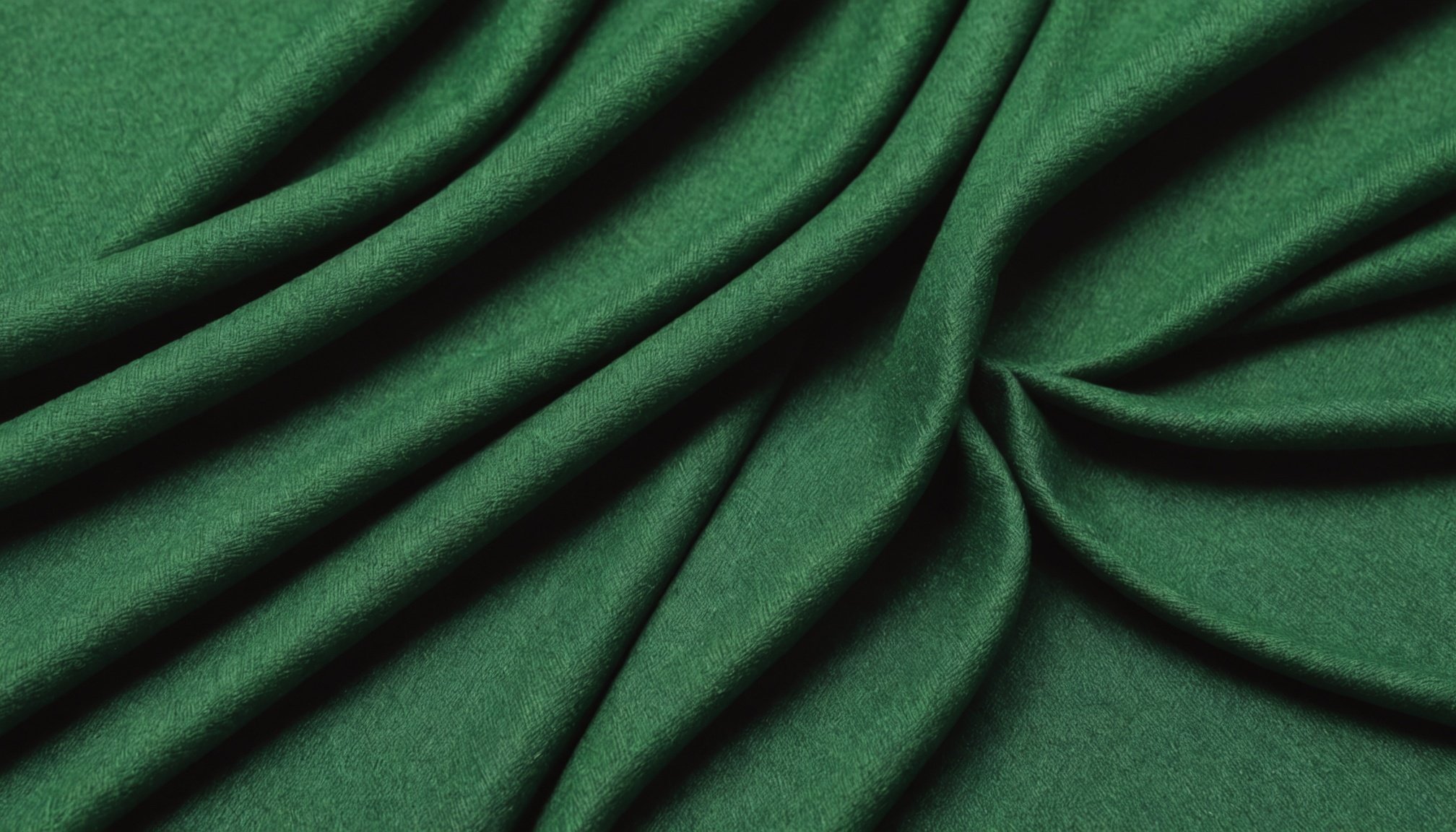Sustainable fashion is not just a fleeting trend; it's a powerful movement reshaping the industry. UK designers are leading the charge, embracing innovative fabrics that prioritize both style and environmental responsibility. From organic cotton to recycled polyester, these materials offer aesthetic appeal without compromising the planet. Discover how these trendiest fabrics revolutionize wardrobes and reflect a commitment to sustainability. Stay ahead of the curve and transform your fashion choices with insights directly from the forefront of this eco-conscious revolution.
Overview of Sustainable Fabrics in the UK Fashion Industry
In the ever-evolving landscape of the UK fashion industry, sustainable fabrics have emerged as a pivotal element. These eco-friendly materials are crafted with minimal environmental impact, often using organic or recycled fibers. The importance of sustainable fabrics cannot be overstated, as they significantly reduce the carbon footprint and promote ethical production practices.
Also to discover : Unlock the elegance: your guide to van cleef bracelets
The current UK fashion trends reflect a growing consumer demand for sustainability. Designers are increasingly incorporating sustainable fabrics into their collections, driven by a conscientious shift towards environmental responsibility. This trend is not just a fleeting moment but a substantial movement towards a more sustainable future.
Recent statistics underscore the significance of sustainability in fashion. According to a 2022 report, over 70% of UK consumers consider sustainability when purchasing clothing. Moreover, the market for eco-friendly materials is expected to grow by 10% annually, highlighting the industry's commitment to sustainable development.
In parallel : Top UK Vintage Markets to Discover One-of-a-Kind 1920s Flapper Dresses
Key Statistics on Sustainability in Fashion:
- 70% of UK consumers prioritize sustainability
- 10% annual growth in eco-friendly materials market
- Increasing designer adoption of sustainable fabrics
The embrace of sustainable fabrics in the UK fashion industry not only meets consumer demand but also sets a precedent for global fashion practices. This shift towards eco-friendly materials is a crucial step in aligning fashion with environmental consciousness.
Popular Sustainable Fabrics Used by UK Designers
In the quest for sustainability, UK designers are turning to sustainable materials that offer both environmental benefits and high-quality fashion options.
Organic Cotton
Organic cotton is a cornerstone of sustainable fashion. Cultivated without harmful pesticides, it preserves soil health and reduces water consumption. This organic textile is not only gentle on the environment but also on the skin, making it a preferred choice for many designers. Its production supports biodiversity and reduces carbon emissions, aligning with the ethical values of the modern fashion industry.
Tencel
Tencel, another popular choice, is renowned for its eco-friendly production process. Derived from sustainably sourced wood pulp, this fabric requires less energy and water compared to conventional materials. Tencel's closed-loop process recycles solvents, minimizing environmental impact. Its versatility and softness make it a favorite among designers seeking sustainable solutions.
Recycled Polyester
Recycled polyester is gaining traction for its role in waste reduction. By repurposing plastic waste, this fabric reduces landfill contributions and conserves resources. It offers durability and functionality, making it suitable for various fashion applications. Designers appreciate its ability to blend sustainability with performance, further promoting the use of recycled fabrics.
- Key Benefits:
- Reduces environmental impact
- Supports ethical practices
- Offers versatility and quality
These sustainable materials are pivotal in transforming the UK fashion industry towards a more environmentally responsible future.
Case Studies: UK Designers Leading the Way
Exploring the forefront of sustainable fashion brands in the UK fashion industry reveals a tapestry of innovation and ethical practices. These ethical designers are not only redefining style but also setting benchmarks for environmental responsibility.
Spotlight on Prominent Designer
One such trailblazer is Stella McCartney, renowned for her commitment to sustainable fabrics. McCartney's collections are a testament to how high fashion can merge with eco-consciousness. Her use of organic cotton and recycled polyester exemplifies her dedication to reducing environmental impact while maintaining luxury aesthetics.
Analysis of a Successful Brand
Another notable example is People Tree, a brand that has seamlessly integrated sustainability into its business model. People Tree's approach involves working closely with fair trade artisans, ensuring ethical production from start to finish. Their collections, made from organic cotton and Tencel, highlight how sustainable fashion brands can thrive without compromising on style or quality.
Emerging Designers Making an Impact
Emerging designers like Bethany Williams are also making waves with their innovative use of sustainable fabrics. Williams' creations often incorporate recycled materials, showcasing a unique blend of creativity and environmental stewardship. These designers exemplify the potential of ethical designers to influence the future of fashion.
- Key Takeaways:
- Use of eco-friendly materials
- Commitment to ethical production
- Innovative design approaches
These case studies underscore the transformative role of sustainable fashion brands and ethical designers in shaping the UK fashion industry's future.
The Role of Certifications in Sustainable Fabrics
Understanding the significance of fabric certifications is crucial in the sustainable fashion landscape. These certifications serve as benchmarks for eco-labels and ensure that sustainable sourcing practices are adhered to.
Key Certifications for Sustainable Fabrics
Certifications like GOTS (Global Organic Textile Standard) and OEKO-TEX are instrumental in promoting sustainable practices. GOTS, for instance, ensures that textiles are produced organically, covering the entire supply chain. OEKO-TEX, on the other hand, certifies that textiles are free from harmful substances, emphasizing consumer safety.
Importance for Consumer Trust
Consumers increasingly rely on these fabric certifications to make informed purchasing decisions. Trust is built when products carry recognized eco-labels, signaling that they meet established environmental and safety standards. This transparency is vital in fostering consumer confidence in sustainable sourcing.
Influence on Designer Choices
Designers are also guided by these certifications, as they navigate the complex landscape of sustainable materials. The presence of eco-labels assures designers of the quality and ethical production of materials, influencing their choice towards sustainable sourcing.
- Key Certifications:
- GOTS: Ensures organic production
- OEKO-TEX: Certifies safety from harmful substances
The impact of fabric certifications extends beyond consumer trust, shaping the decisions of designers committed to sustainability.
The Environmental Impact of Sustainable Fabrics
Exploring the environmental benefits of sustainable fashion reveals a stark contrast with traditional fabrics. Sustainable fabrics, crafted with eco-consciousness, significantly lessen the carbon footprint of the fashion industry.
Comparison: Sustainable vs. Traditional Fabrics
Traditional fabric production often involves high water usage and pollution. Conventional cotton, for instance, requires vast amounts of water and pesticides, impacting ecosystems. In contrast, sustainable fabrics like organic cotton use less water and avoid harmful chemicals, preserving natural resources.
Water Usage and Pollution
The shift to sustainable fashion is crucial in addressing water scarcity and pollution. Sustainable fabrics are designed to minimize water consumption, utilizing innovative techniques that reduce waste. This not only conserves water but also decreases pollution levels, making a substantial impact on the environment.
Reducing Carbon Footprints
Sustainable fabrics contribute to reducing carbon footprints by employing energy-efficient processes. For example, Tencel's closed-loop production recycles solvents, cutting down on emissions. By choosing sustainable options, the fashion industry can significantly lower its carbon emissions, aligning with global sustainability goals.
- Key Environmental Benefits:
- Lower water usage
- Reduced pollution
- Decreased carbon footprint
These advancements highlight the vital role of sustainable fabrics in transforming fashion into a more environmentally responsible industry.
Challenges in Sourcing Sustainable Fabrics
Exploring the intricacies of sourcing sustainable fabrics reveals several challenges that designers face in the UK fashion industry.
Availability of Sustainable Materials
The availability of sustainable materials is a significant hurdle. Despite rising demand, the supply of eco-friendly fabrics is limited. This scarcity often results in designers struggling to find consistent and quality sources.
Cost Implications for Designers
Cost is another critical factor. Sustainable fabrics typically come with higher price tags due to the ethical production processes involved. This can deter designers, especially emerging ones, from fully embracing sustainable practices.
- Key Challenges:
- Limited availability
- Higher costs
- Ethical sourcing complexities
Ethical Sourcing Practices
Ethical sourcing practices add another layer of complexity. Ensuring that sustainable supply chains are genuinely ethical requires meticulous oversight and transparency. This process is not only time-consuming but also demands significant resources from designers committed to sustainability.
"The greatest challenge lies not in the intention to source sustainably, but in the execution," notes a leading UK fashion designer.
Navigating these sourcing challenges is essential for designers aiming to integrate sustainable fabrics into their collections. Despite these obstacles, the commitment to sustainable supply chains remains a vital component of the industry's evolution towards environmental responsibility.
Consumer Awareness and Demand for Sustainable Fashion
Understanding the dynamics of consumer interest in sustainable fashion is crucial.
Growing Consumer Interest
The rise in consumer trends highlights a significant shift towards sustainable products. Consumers are increasingly aware of the environmental impact of their purchases, driving demand for sustainable fashion. This awareness is not just a trend; it reflects a fundamental change in purchasing behavior.
Market Trends and Purchasing Behavior
Recent market trends indicate that consumer purchasing behavior is evolving. Shoppers are prioritizing sustainability, seeking brands that align with their values. A study showed that 68% of consumers are willing to pay more for sustainable products, underscoring the importance of sustainable fashion awareness.
- Key Factors Influencing Demand:
- Environmental impact awareness
- Ethical production practices
- Quality and durability of sustainable products
Influence of Social Media
Social media plays a pivotal role in enhancing sustainable fashion awareness. Platforms like Instagram and TikTok have become arenas where brands and influencers promote sustainable practices. This digital influence amplifies consumer interest, making sustainable fashion more accessible and desirable.
"Social media is a powerful tool in shaping consumer perceptions and driving demand for eco-friendly products," states a fashion industry expert.
Understanding these dynamics helps brands meet the rising market demand for sustainable fashion, aligning their practices with consumer expectations.
Future Trends in Sustainable Fabrics
Exploring the next wave of eco-friendly textiles and innovations.
Predictions for New Sustainable Materials
The future of sustainable fashion trends is promising, with innovations in future fabrics set to revolutionize the industry. Researchers are developing materials like algae-based textiles and lab-grown leather, which promise to reduce environmental impact significantly. These innovative textiles are not only biodegradable but also offer unique textures and properties, appealing to designers and consumers alike.
Technological Advancements in Fabric Production
Technological advancements are at the forefront of innovation in textiles. 3D printing and nanotechnology are being explored to create sustainable fabrics that are both durable and versatile. These technologies enable the production of fabrics with minimal waste, aligning with the industry's push towards sustainability. The integration of smart textiles, which can interact with the environment, is also gaining traction, offering new possibilities for future fabrics.
Potential for Circular Fashion and Closed-Loop Systems
The concept of circular fashion is gaining momentum, emphasizing the reuse and recycling of materials. Closed-loop systems are being developed to ensure that textiles can be continuously repurposed, minimizing waste. This approach not only supports sustainable fashion trends but also promotes a shift towards a more responsible and regenerative fashion industry.
- Key Innovations:
- Algae-based textiles
- Lab-grown leather
- Smart textiles
"The future of fashion lies in the intersection of technology and sustainability," notes a textile innovation expert.
The Ethical Implications of Sustainable Fashion
Exploring the intersection of ethics and sustainability in fashion.
Labor Practices in Sustainable Fabric Production
Examining labor practices in the production of sustainable fabrics reveals significant ethical considerations. Sustainable fashion often emphasizes fair working conditions, ensuring that workers receive fair wages and operate in safe environments. This approach contrasts with some traditional fashion practices, where labor exploitation remains a concern. A commitment to ethical labor practices is essential for the credibility of ethical fashion.
Importance of Fair Trade in Fashion
Fair trade plays a pivotal role in the ethical landscape of sustainable fashion. It ensures that producers in developing countries receive equitable compensation, promoting economic sustainability. Fair trade principles also advocate for transparency and accountability in the supply chain, reinforcing the ethical foundation of sustainable fashion. This approach not only benefits workers but also enhances the reputation of brands committed to ethical practices.
Broader Ethical Implications
The broader ethical implications of choosing sustainable fashion extend beyond individual products. By supporting ethical fashion, consumers contribute to a systemic change towards more responsible and equitable industry practices. This shift encourages brands to adopt fair trade and ethical labor practices, ultimately fostering a more sustainable and just global fashion ecosystem.
- Key Ethical Considerations:
- Fair wages
- Safe working conditions
- Transparency in supply chains
"Ethical fashion is not just a trend, but a necessary evolution in responsible business practices," asserts a leading fashion ethicist.
Resources for Exploring Sustainable Fabrics
Delving into the world of sustainable fashion requires reliable resources and guidance.
Exploring the realm of sustainable fashion resources can be both enlightening and practical for enthusiasts and professionals alike. Several organizations are dedicated to supporting sustainable fashion initiatives. For instance, the Sustainable Apparel Coalition and Fashion Revolution provide invaluable insights and tools to encourage eco-friendly practices.
Educational Materials and Fabric Guides
Numerous books and articles offer comprehensive knowledge about sustainable fabrics. "Fashion and Sustainability: Design for Change" by Kate Fletcher and Lynda Grose is a must-read, offering in-depth perspectives on integrating sustainability into fashion design. Additionally, "The Sustainable Fashion Handbook" by Sandy Black is another excellent resource, providing a holistic view of the industry.
Online Platforms and Marketplaces
For those seeking sustainable materials, several online platforms and marketplaces cater to this need. Websites like Ecovative Design and Offset Warehouse offer a wide range of eco-friendly textiles. These platforms not only provide access to sustainable fabrics but also educate consumers on the benefits of choosing environmentally responsible options.
- Key Resources:
- Sustainable Apparel Coalition
- Fashion Revolution
- Ecovative Design
"The journey towards sustainable fashion is paved with knowledge and informed choices," emphasizes a renowned fashion sustainability expert.











